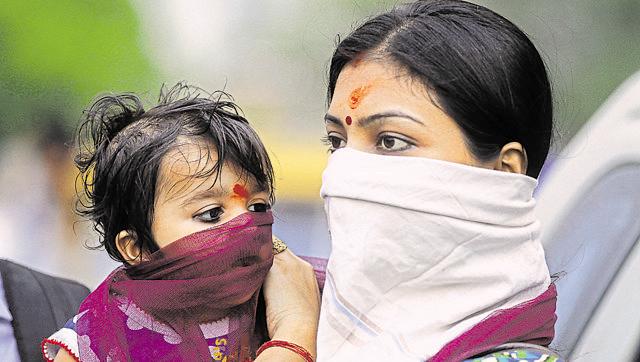There is a well-known saying that “a nation gets the government it deserves”. While typically used in a derisive context, when a clearly unsuitable candidate is elected to high office (as happened in the US at the turn of the millennium), the underlying message is that when faced with an undesirable outcome, the root cause is often to be found staring back at you in the mirror.
The now critical problem of air pollution in Delhi, as well as a number of other cities across the land, is increasingly a reflection of the choices that the citizens of the capital, and the broader nation, make every single day. Choices around how we allow the city to develop, our commuting habits, the way in which we dispose of our trash, and, most importantly, whether we choose to hold ourselves accountable for violations of laws and regulations that are designed to protect us from such outcomes. That the Delhi CM has had to announce a drastic “even-odd” policy, leading to a deeply polarized reaction from the public, should be regarded as a failure. The only long-term solution to a problem like this has to come from a change in behavior that is driven by greater awareness.
Granted that not all these choices are solely in our hands – after all, agricultural practices, land development, pollution standards and fuel quality specifications are not something that the aam aadmi influences directly. But, as consumers, we have far greater power over businesses than we allow ourselves to exercise. As voters, we can continue to participate in governance well past the election. And, as residents of the same great city, we can help one another make the right choices. Our neighbour China, which developed ahead of us, and has been experiencing far worse pollution for a longer period of time, is capable of taking swift decisions, with severe punishment for those who violate the laws. As staunch believers in democracy, we prefer to debate, pontificate and ultimately procrastinate – all of which will cost us dearly.
Economists tell us that pollution of any kind is a negative externality, which a business typically does not reflect on its balance sheet. The standard solutions to addressing this are an outright ban (eliminate what is causing the pollution), taxes/fines (although this is often interpreted as a fee to continue polluting), and a cap and trade type system (where I can pay someone else to stop polluting, but continue to do so myself). All of these involve some kind of financial penalty, because that is the easiest way we know of to drive behavioral changes.
But let me ask you this – how much money would you, as a parent, pay to have your child’s asthma cured forever? While a child born today into a middle class family in India has access to far greater material possessions than his or her parents did two or three decades ago, they do not have the benefit of breathing clean air. The richer ones will fly off to London or Singapore, and marvel at finally having their lungs opened up, not realizing that these cities have faced their own challenges in the past and resolved them through a firm commitment to delivering a good standard of air quality. And for those who complain that the GDP growth of the country will be affected if we start to curb down on economic (read polluting) activity, do you really want a future where we have all the money in the world, but are closed up in a room with air purifiers and inhalers as our only companions? Before you dismiss this as alarmism, talk to those who are currently living this way.
Talk is cheap – actions speak louder than words. We can continue to tweet and put up “Clean Delhi, Green Delhi” signs – or take direct action to change ourselves, and those around us. When we see a truck belching soot, will we turn the other way, or have it taken off the road? To the policeman, who may accept a payment to turn a blind eye, recognize that your son or daughter is paying the price. The next time someone strikes a match to set fire to a pile of leaves, will we stop them? If we say “It’s not my problem”, do we really believe that the smoke will not drift its way over to where we live? And when it is a particularly foggy day, will we choose to stay indoors as opposed to driving to the mall? Yes, we really want to see “Prem Ratan Dhan Payo”, but we won’t be paying just the price of the ticket. These decisions, and others like them, are entirely in our hands, and we need to act, rather than appeal to Kejriwal or Modi or The God of Clean Air to come to our rescue.
There is a story of a little girl walking along a beach, when she comes across thousands of starfish washed up by the tide, which is now starting to recede. Realizing that they will die, she quickly runs and starts to picking them up and throwing them, one at a time, into the water. A passerby comments “It doesn’t matter dear, there are so many of them”. The girl, throwing another starfish, replies “It matters to that one”. Yes, the air pollution problem is challenging, and the necessary actions too numerous, and to be taken by too many people, that it has paralysed us in a way. But whatever little each one of us does will cumulatively make a huge difference that we can see – and breathe.
[“source-hindustantimes”]






